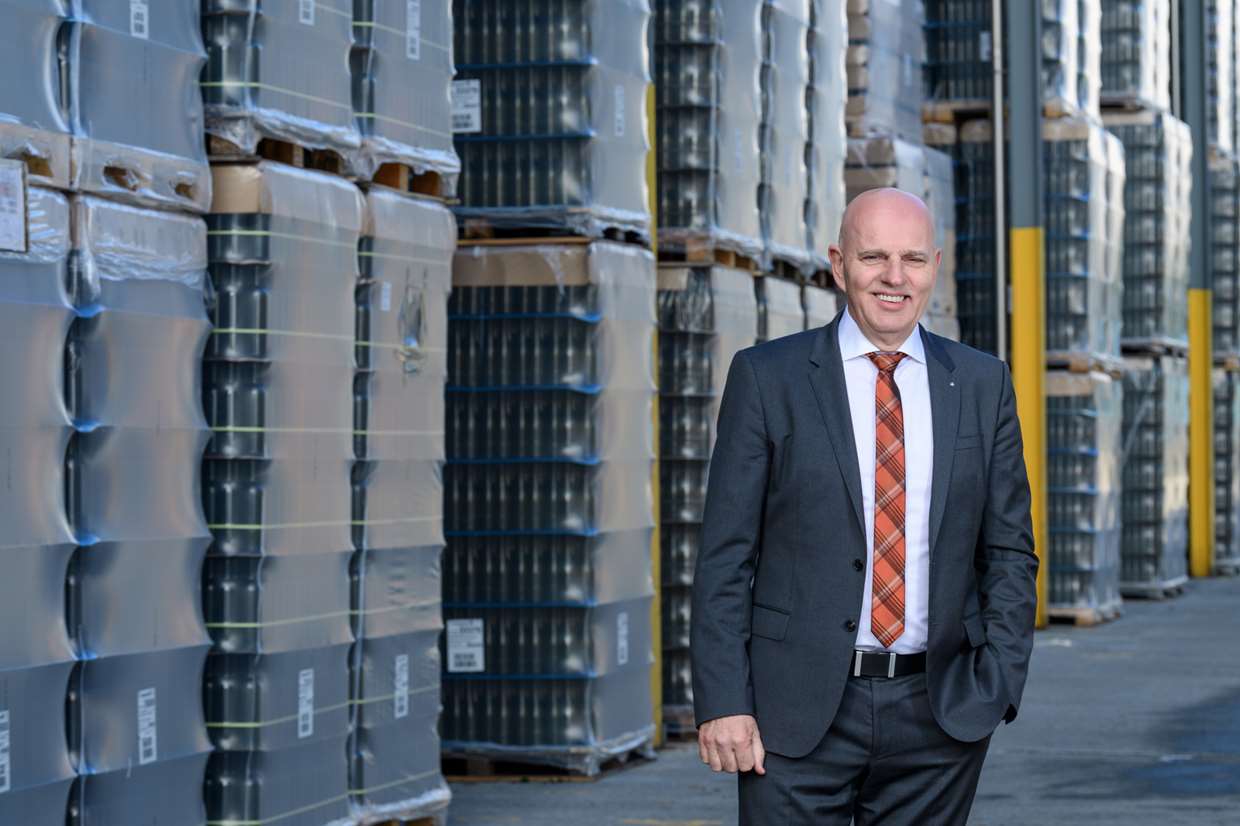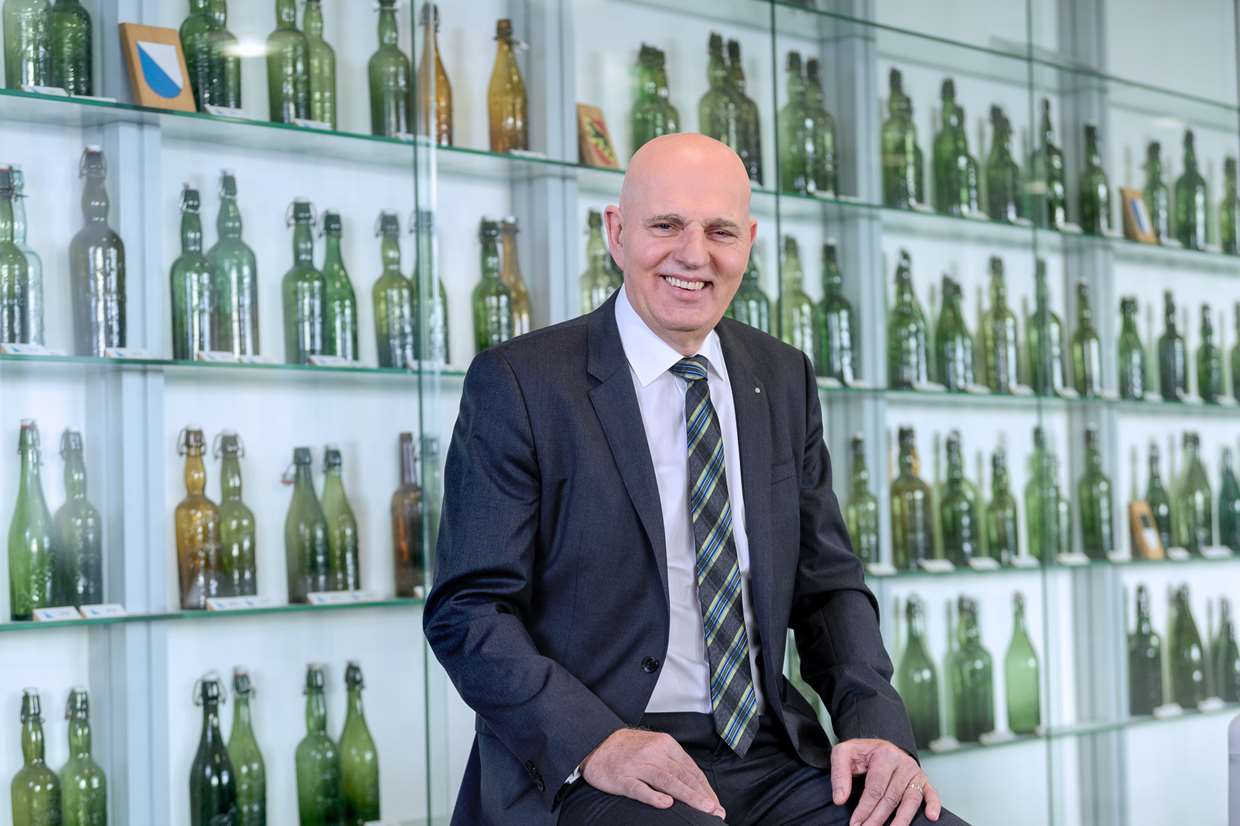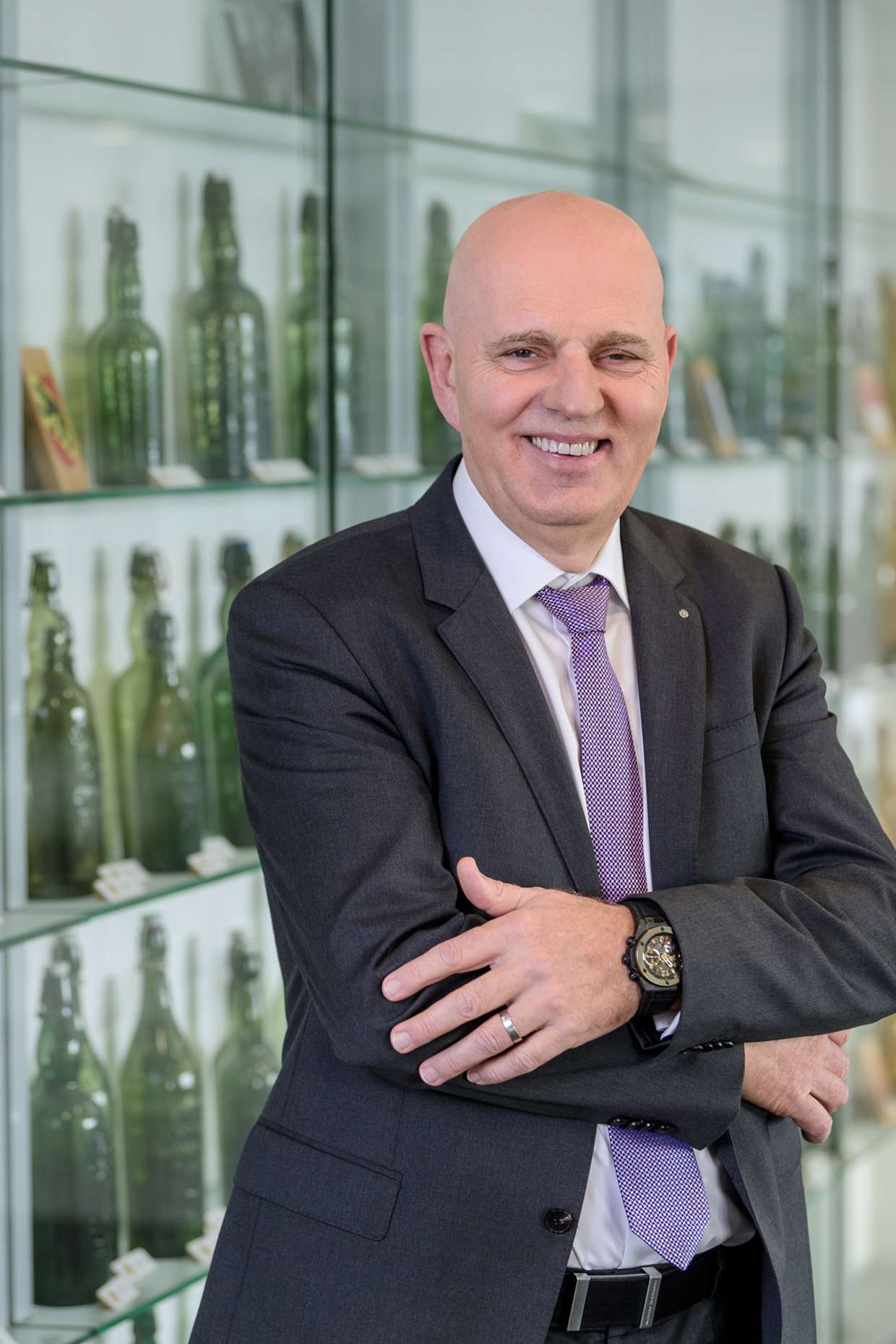- Interview CEO
- Vetropack Locations
- Market environment offering opportunities and challenges
- Business model
- Strategy 2030
- Management Structure
- Organisation
- Col2
- Material Topics and Performance Review
- Customers and suppliers
- Finances
- Innovation and intellectual property
- Production and products
- Employees
- Environment
- Col3
- New designs
- Financial Report
- Col1
- At a Glance
- Financial Report Vetropack Group
- Consolidated Balance Sheet
- Consolidated Income Statement
- Consolidated Cash Flow Statement
- Changes in Consolidated Shareholders’ Equity
- Consolidation Principles
- Valuation Principles
- Notes
- Ownership Structure
- Company Participations
- Report of the statutory auditor on the consolidated financial statements
- Five Year Overview
- Col2
- Financial Report Vetropack Holding Ltd
- Balance Sheet
- Income Statement
- Notes
- Board of Directors’ (BoD) Proposal for the Corporate Profit Appropriation
- Report of the statutory auditor on the financial statements
- Five Year Overview
- Corporate Governance
- Col1
- Introduction
- Board of Directors
- MB Members
- Remuneration and Additional Information
- Shareholders’ Participation Rights
- Auditors
- Information Policy
- Contact Address
- Remuneration Report
- Col1
- Introduction
- Principles of the Remuneration Scheme and its Components Audited Information
- Organisation and Authorities for Determining Remuneration
- Description of the Remuneration Components
- Board of Director’s Remuneration
- Management Board’s Remuneration
- Comparison of Remuneration disbursed with the Remuneration approved by the 2018 and 2019 Annual General Assembly
- Shareholdings
- Report of the statutory auditor on the remuneration report
- Sustainability Report
- Col1
- Sustainability Report
Interview with
Johann Reiter,
CEO of Vetropack Group“More evolutionary steps are needed.”
Vetropack CEO Johann Reiter promised evolution rather than revolution when he took up office in 2018. In an interview, he now reveals that the evolution has picked up speed in 2019. However, further action is needed. The Strategy 2030 that was developed last year is also evolutionary. For example, it envisages Vetropack becoming a pioneer in innovation and sustainability.
Mr Reiter, what is your view of Vetropack’s developments in the 2019 fiscal year?
I think it’s been a positive year. We were able to exploit the healthy market environment and make further headway. 2019 was an exceptionally good year economically speaking – even with two major projects being wound up, namely the furnace overhauls in Slovakia and Ukraine. We can’t overlook our activities in Italy, where we will be building a new glass packaging plant on a greenfield site. All of this has demanded a great deal from us. Top-level management also saw a change, with Evan Williams now heading up the Group-wide Marketing, Sales and Production Planning division as CCO since mid-2019. He has taken to the role very quickly. When I took up office two years ago, I said I wasn’t going to bring about a revolution but rather an evolution. This evolution picked up speed in 2019.
What goals did Vetropack achieve in 2019?
We achieved our planning goals relating to sales and our operating result. We’ve been able to draw some significant projects, such as the furnace overhauls I’ve already mentioned, to a successful close. We’ve also taken further steps on the path towards automation and digitalisation. For example, we upgraded our ERP system to the latest version – and we were able to do this within the time limit and budget.

Where does Vetropack still have improvements to make in 2020?
We need to take more of the evolutionary steps we’ve been taking over the years. Things are moving at high speed. For example, in 2019 we carried out an extensive employee survey and also surveyed Vetropack Group customers. We had analysed the results of the surveys by the end of 2019 and have already defined most of the potential for improvement. 2020 will be all about implementation.
In 2019, Vetropack managed to increase its sales. What were the key factors behind this growth?
In 2018, stock levels were one of the reasons we managed to boost our sales. 2019 was different. Last year, the growth in sales was down to higher production and productivity levels. The projects we implemented in 2018 played an instrumental role in this. We established our position with a good mix of products last year too. As part of the “Blue” project, we produced blue glass packaging for the first time, specifically in Slovakia. As demand was and still is high, we will continue to produce blue glass in 2020 by colouring it in the furnace.
Vetropack was also able to considerably improve its operating result in 2019. What were the main reasons behind this?
The projects aimed at increasing productivity took effect: for one thing, countless employees from the production departments of our Group companies underwent further professional development at our own training centre in Austria. Systematically skills enhancement makes a great difference. On top of this – as I have already said – we had an advantageous mix of products.
What targets has Vetropack set itself for 2020?
We are expecting the market environment in 2020 to be just as positive as 2019. We therefore believe we will be able to continue on our path of success. This year, we will be carrying out a major furnace overhaul in Croatia. This project will keep the whole Group occupied, as we won’t just be revamping one furnace, but modernising the entire production plant. This will of course lead to a lengthy break in production. The new-build project in Italy is also in full swing. The new Vetropack glassworks in Boffalora sopra Ticino is set to be up and running from 1 August 2022.

For the 2019 fiscal year, the sustainability report will be integrated into the annual report for the first time. Are you suggesting that Vetropack is now a completely sustainable company?
Definitely. Vetropack operates sustainably solely by virtue of the very nature of its products. Glass – a reusable material – is excellent for this. However, we realise that we must not be complacent. There is still lots to be done, but in our first integrated annual report we are shining the spotlight on our holistic understanding of value creation as something that encompasses non-financial values as well as financial aspects.
The fact that the integrated annual report will no longer be printed but will be exclusively available online instead is also a first. Is this also for the sake of sustainability?
Absolutely. That’s exactly what this is about. We’re adapting the annual report to the times, which are characterised not only by increasingly sustainable thinking but also growing digitalisation
In 2019, Vetropack developed a new strategy to last until 2030. What was the reason for doing this? Business is already going very well.
It is important to look to the future and develop visions further on a regular basis. We therefore looked into the matter of where Vetropack ought to be positioned in the European glass packaging industry over the next ten years. We deliberately chose a broad approach, scouring the whole company for strengths and weakness and devising scenarios to develop the industry and markets. The strategy was developed by a team made up of eight core members, bolstered by external support. On top of this, there was an extended team with members from all age groups and hierarchical levels and from all the Group’s companies. The effects of the new strategy will certainly be felt over the next few years, with changes being triggered. It will therefore be important for us to communicate our strategy to our employees in a clear way and incorporate this into the change processes.

Johann Reiter
CEO of the Vetropack Group
“It is important to look to the future and develop visions further on a regular basis.”
The strategy will be in place until 2030. That’s ten years from now. In this fast-paced age we’re living in, is it still possible to make such long-term plans?
The ten-year period taking us to 2030 was important to us because our investment cycles are also so long. In our industry in particular, nothing works without a long-term plan. What we do today will only start yielding results in five to seven years. A large organisation is like a big tanker in that it can’t change direction very quickly. However, we will review the strategy every year and make any changes that are needed.
You said before that the new strategy has five main lines of action. Can you tell us which is the most important?
One important area is innovation. We want to be a trendsetter in this respect. One example of this is VIP glass – Vetropack Improved Performance Glass. In spring 2019, we successfully launched a lightweight reusable glass bottle on a geographically restricted market for the first time. Over the next few months and years, we will further develop this technology for other glass containers. Another key issue is the systematic integration of various aspects of sustainability in our value chain. We are keen to be a pioneer in our industry. We therefore want to significantly increase the proportion of used glass we put into producing glass packaging – we want to step up recycling even further. In addition, photovoltaic systems on the roofs of our plants need to be used to supply more renewable energy for production. We are also focusing on the organisation and employees. We want to set ourselves up as well as we can to be successful in the market. Training and further development is an important factor here. Sales have a key role to play too: Our aim is to successfully bring new products with new business models to the market and thus gain new customers.
You just mentioned sales. The word “growth” is closely connected with this. Have you drawn up targets for growth in the new strategy too?
Yes, of course. But I won’t tell you them. I’ll just say that we have been known for growing not only organically, but through acquisitions too in the past. We want to continue in this vein in the future, if the opportunity presents itself. Growth is clearly a significant part of the strategy. Be we don’t want to grow just for the sake of growth; we want to exploit profitable opportunities for development in a targeted way.
Interviewer: Martin Gollmer, journalist
This website uses cookies to ensure you get the best experience on our website.Privacy statement
- Sustainability Report
- Col1
- Col1
- Col1
- Col1
- Material Topics and Performance Review